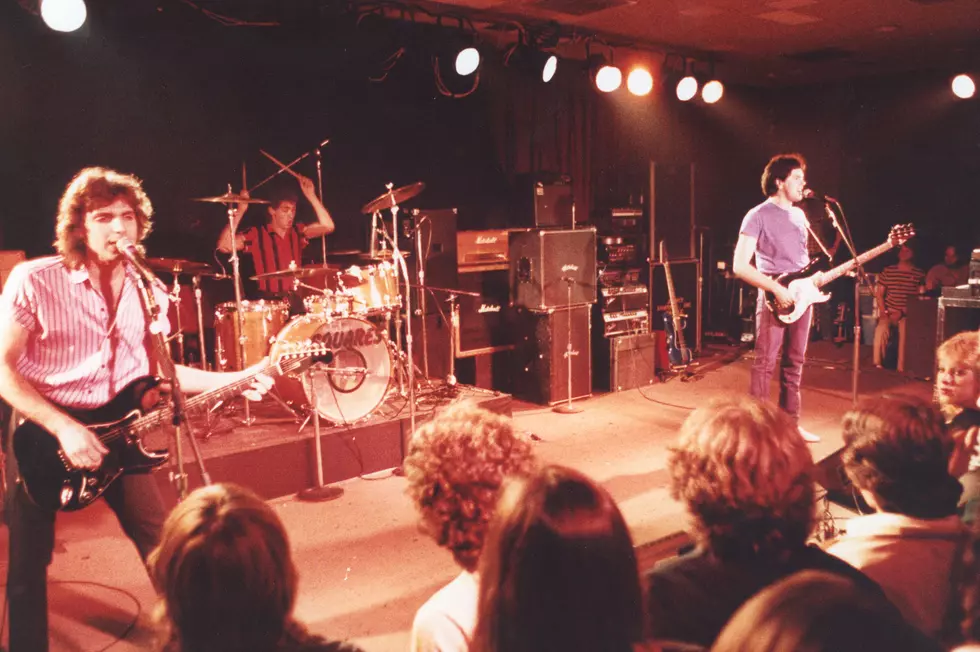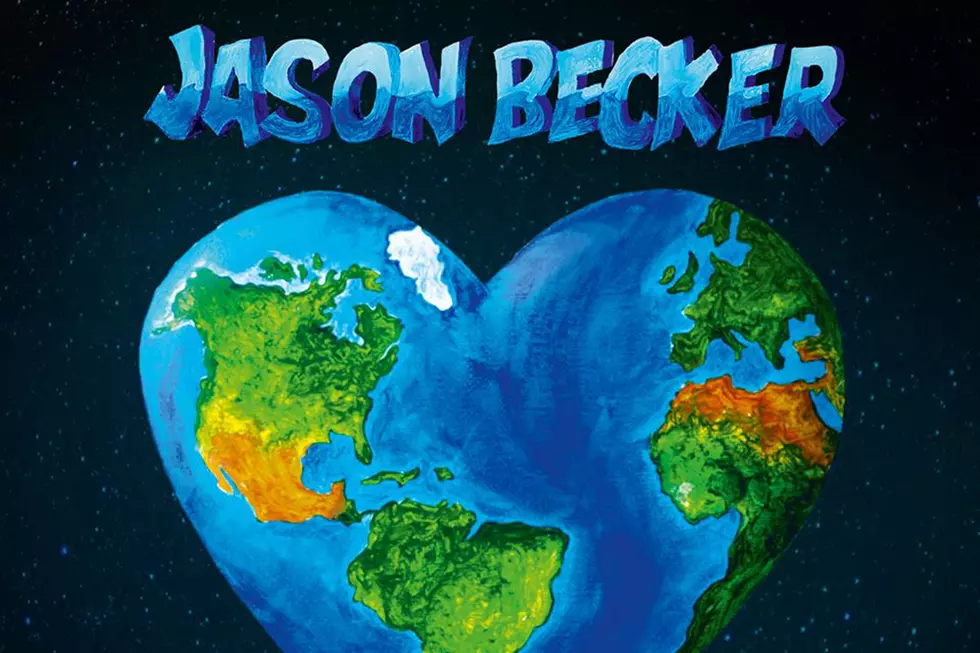
Listen to New Song by Joe Satriani’s ’80s Band Squares: Exclusive Premiere
With the pending release of Squares: Best of the Early ‘80s Demos, Joe Satriani unlocks another obscure corner of his career.
The new collection, due on April 5, gives fans a chance to hear some of the guitar legend’s earliest recordings for the first time, in a restored and remixed package overseen by longtime producer and collaborator John Cuniberti.
Included in the set is “So Used Up," an exclusive premiere that you can hear below.
“When I listen to a song like ‘So Used Up,’ I’m really impressed by the uniqueness of the chord progression and how I play the riff," Satriani tells UCR. "I remember when we started working on that one [for this new album], I immediately picked up the guitar and asked myself, ‘Now, how did I do that?' It felt really clumsy and I’m looking at my fingers and I’m thinking, ‘Did I really write and play that?’ And I think to myself, boy, that is quite unusual for a guitar player to string together those voicings and those riffs and to support a vocal like that.”
The Berkeley-based trio, which also featured drummer Jeff Campitelli and singer Andy Milton, came together in 1979 at a time when Satriani had been working on songs with his brother-in-law Neil Sheehan. The pair envisioned it would create a “new version of power pop” with the music it was writing.
“We would bring in elements of old rock 'n' roll, punk, New Wave, heavy metal, classic rock, just about everything you could think of,” Satriani recalls, noting the diversity of the three members’ musical backgrounds.
“I think it was really exciting, because we were so different from each other," he explains. "Andy had a real background in ‘50s rock 'n' roll. He could sing like Elvis [Presley], so he had this connection to that kind of American roots rock 'n' roll. He shared none of my love for heavy rock, heavy metal, fusion, jazz, bebop -- that was not his world at all. So I think he found it kind of exciting in an exotic way that this Italian kid from Long Island was such an expressive player.”
Similarly, Satriani found Milton a “throwback to a kind of musician” he’d never really played with and says the pair welcomed its differences. Campitelli proved to be the perfect drummer for the developing musical alliance.
“He was so much younger than us, but at the same time, he seemed to have wisdom of a hundred years of drumming under his belt,” Satriani recalls. “He could receive my style and Andy’s style and somehow pull it together. So we made a very interesting sound together.”
He admits that, for many years, the idea of revisiting Squares wasn't an easy thing to dig into.
“It’s sort of like looking at old Polaroids from some crazy party that you forgot about," he says. "You look at yourself and you go, “That was me? Really?” I have great memories of good times that we had and lots of hard industrious attitude and work that we did. I’ve got lots of bad memories of all of the failures and of the unfortunate demise of the band. It’s all mixed up. It’s a complicated emotional story, and those things come up when you go back and you finally say, ‘Okay, I’m going to listen to everything and I know it’s going to remind me of all of these feelings and unresolved issues, but I’m just going to do it, because I know it’s the right thing to do.’”
Satriani says the “cathartic” process of being the subject of his son’s recent documentary, Beyond the Supernova, made it easier to tackle this project. “There’s nothing to hide anymore,” he says. “Everybody knows everything.”
Plus, he had the idea to treat Squares like they were new. “I thought, ‘Well, if it was a brand new band, what we would do is we would get the best recordings of the best songs that had the best performances,’" he explains.
"So when John and I started talking about it, we thought, ‘You know, we can do this now.’ We have enough distance emotionally from that era, where we can look at it in a real professional way. We have better technology to make the transfer and to remix. I think there’s a strange combination of being super passionate and dispassionate and professional at the same time, where you can have the right insight and also the right distance to put together a project like this.”
Cuniberti did a lot of the homework over the past 10 years, archiving and cataloging the band’s recorded material.
“All we needed was the proper musical perspective to be able to pick the best performances," Satriani says. "The earlier cassette tapes that we would release, they may not have been the best performances of those songs or certainly not the best mixes. This let us go back and kind of do what you do if you were releasing a remix of a [Rolling] Stones record or what the Beatles have been doing, releasing the White Album with alternate mixes and things. Over the decades, you gain perspective and you see what worked and what didn’t and it allows you to put together an album that really shines.”
Satriani is more tentative when it comes to other rarities in his vaults. “At some point, there’s too much stuff that conflicts with great connections and memories that fans have with the iconic versions,” he says, noting he's already dug into a surplus of unreleased material over the years.
“With the ‘Chrome Dome’ release a few years ago and even going way back to the ‘90s when we released Time Machine, that had so much stuff that was on the cutting floor or we thought was just too weird,” he says.
“Something like ‘Woodstock Jam’ is definitely only for the super-hardcore fan. But we released it anyway, just to show that musicians sometimes entertain and exist and enjoy playing music way out on the fringe, and it helps them come back in and play on the inside -- to create something that’s tight and ready for prime time. Sometimes it takes that journey to the outside to give them perspective. So in that way that gave us that sort of artistic license to put that on the record.”
Still, there’s always more music percolating in Satriani's head. He says he’s starting to put together ideas for the follow-up to 2018's What Happens Next, though there’s no timetable on when he might release something.
“I don’t really have a direction yet," he says. "I’m in that wonderful period where I’m just writing for anything. I’m just really reflecting what’s happening in the world and my life and I’m not worried about a schedule just yet.”
Masterpieces: The Very Best Albums From More Than 100 Classic Rock Acts
More From 96.1 The Eagle








